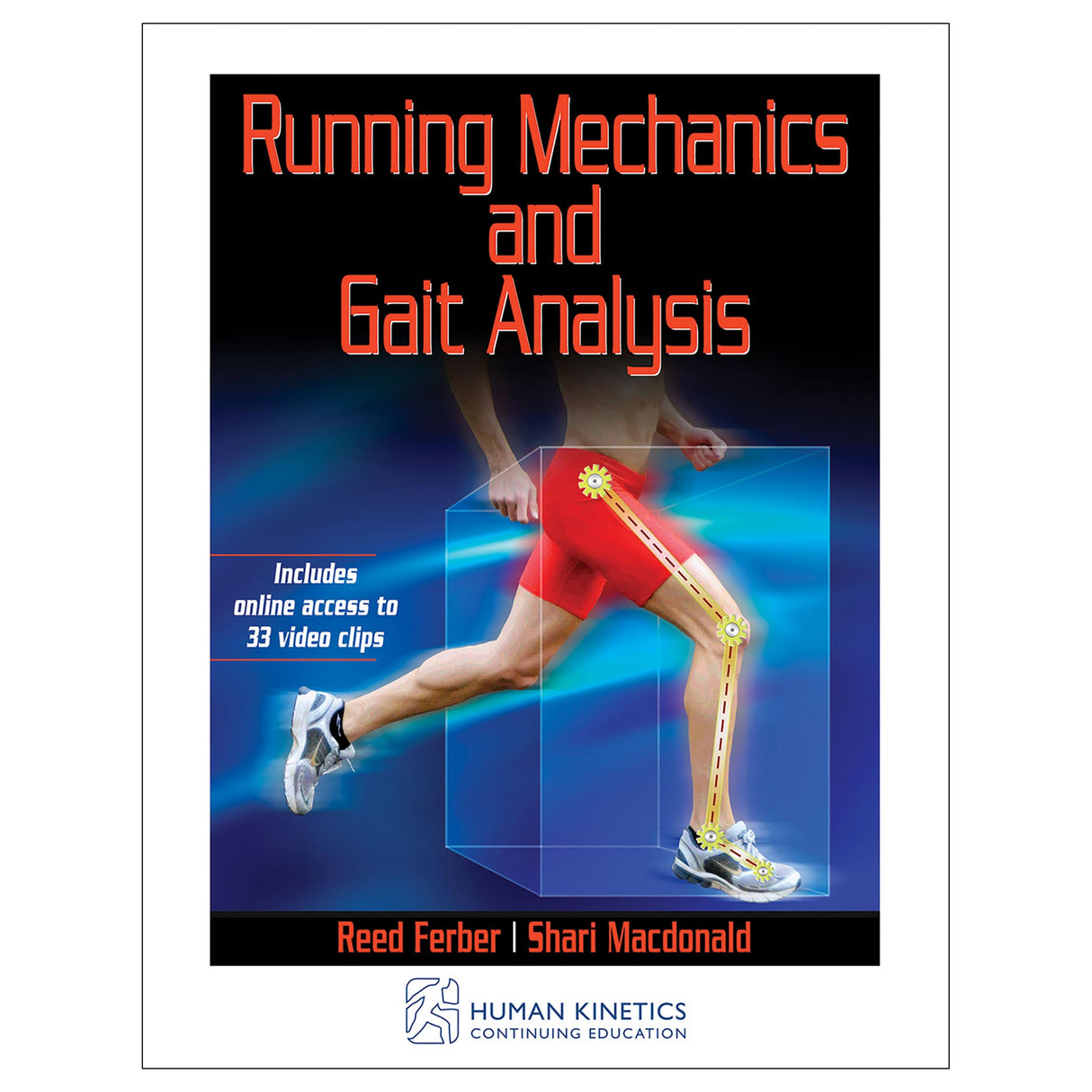Running Mechanics and Gait Analysis Online CE Course With Ebook
Author: Reed Ferber, Shari Macdonald
$96.95 CAD
Human Kinetics strongly recommends that you complete your exam within the calendar year of your date of purchase to ensure approved credits do not expire for your organization.
- Running Mechanics and Gait Analysis ebook
- Online video clips
- Online continuing education exam
Early chapters introduce the basics of running-related injuries, foot mechanics, and shoe selection. The book then progresses to knee and hip mechanics, ways to influence gait mechanics, and technical aspects of video gait analysis. Using a detailed joint-by-joint analysis, the ebook pinpoints common problem areas for runners and describes protocols for treatment.
Later chapters present documented clinical examples and case studies of injured runners to guide professionals through a detailed biomechanical analysis. An overview chapter summarizes the interrelationships of movement patterns at each joint with anatomical, strength, flexibility, and kinetic chain factors.
Accompanying the course is an online video library featuring 33 clips that demonstrate 15 of the biomechanical patterns discussed in the ebook.
Once you complete the course and pass the exam, you can print a certificate for continuing education credits.
Audience
Certified athletic trainers, physical therapists, fitness instructors, personal trainers, and strength and conditioning coaches.Defining an Overuse Injury
Etiology of Overuse Injuries in Runners
Common Running-Related Injuries
Understanding Clinical and Biomechanical Risk Factors
Summary
Chapter 2. Assessing Foot Mechanics
Biomechanics
Atypical Foot Mechanics and Injury
Strength
Anatomical Alignment
Flexibility
Summary
Chapter 3. Footwear Selection
Overview of Running Shoes
Footwear Research Findings
Shoe Fitting
Barefoot Running
Orthotic Devices and Foot Mechanics
Summary
Chapter 4. Assessing Knee Mechanics
Biomechanics
Strength
Anatomical Alignment
Flexibility
Summary
Chapter 5. Assessing Hip Mechanics
Biomechanics
Strength
Anatomical Alignment
Flexibility
Summary
Chapter 6. Proximal to Distal Relationships: Case Studies
Torsional Forces
Frontal Plane Mechanics
Summary
Chapter 7. Can We Influence Gait Mechanics?
Feedback
Strength Training
Revisiting the Case Studies
Summary
Chapter 8. Overview of Clinical and Biomechanical Assessment
Foot, Ankle, and Tibia
Knee
Hip
Summary
Chapter 9. Technical Aspects of Video Gait Analysis
Sampling Frequency
F-Stop and Shutter Speed
Software Options
Summary
Afterword
Appendix: Terminology for Gait Biomechanics





